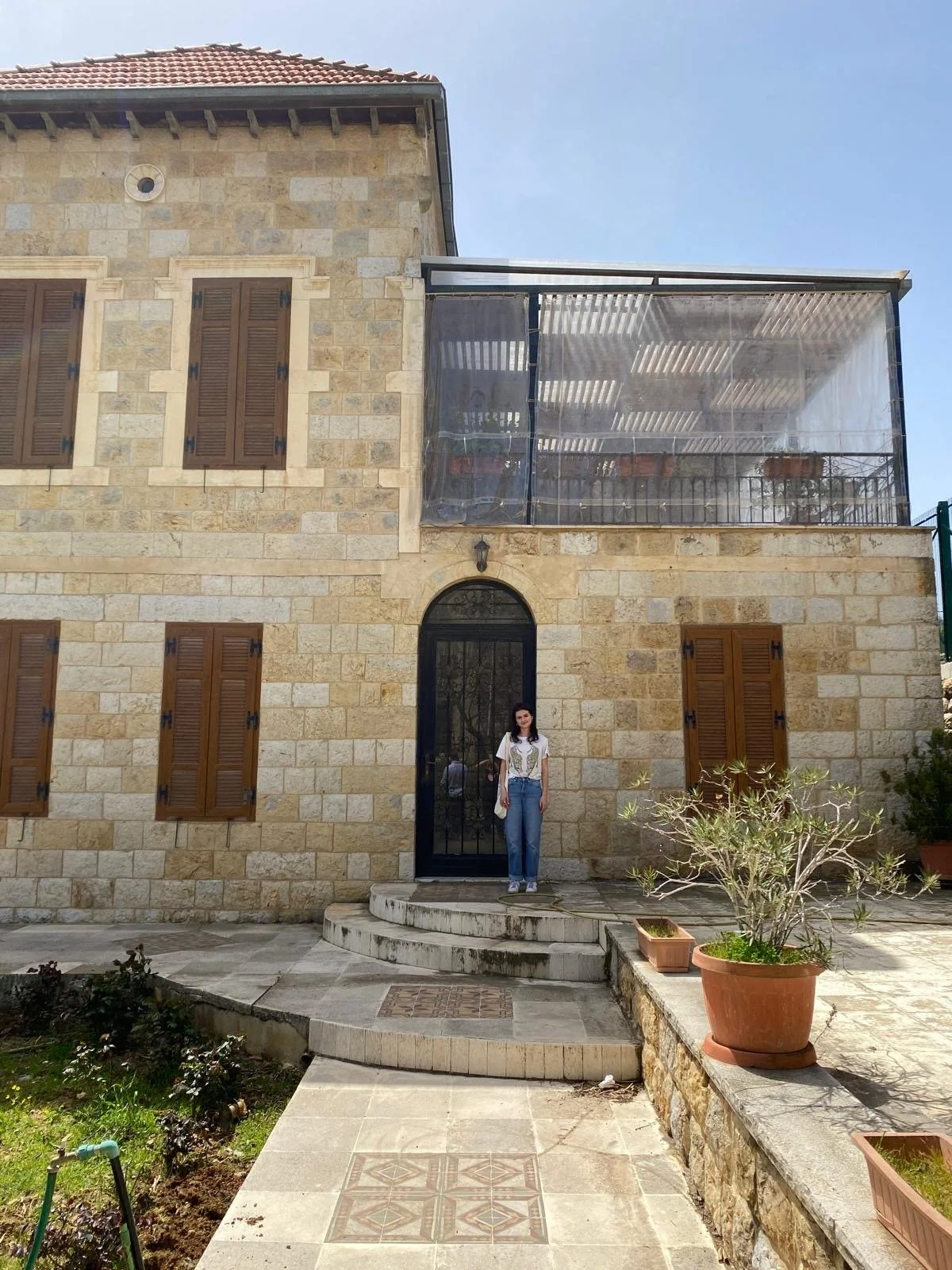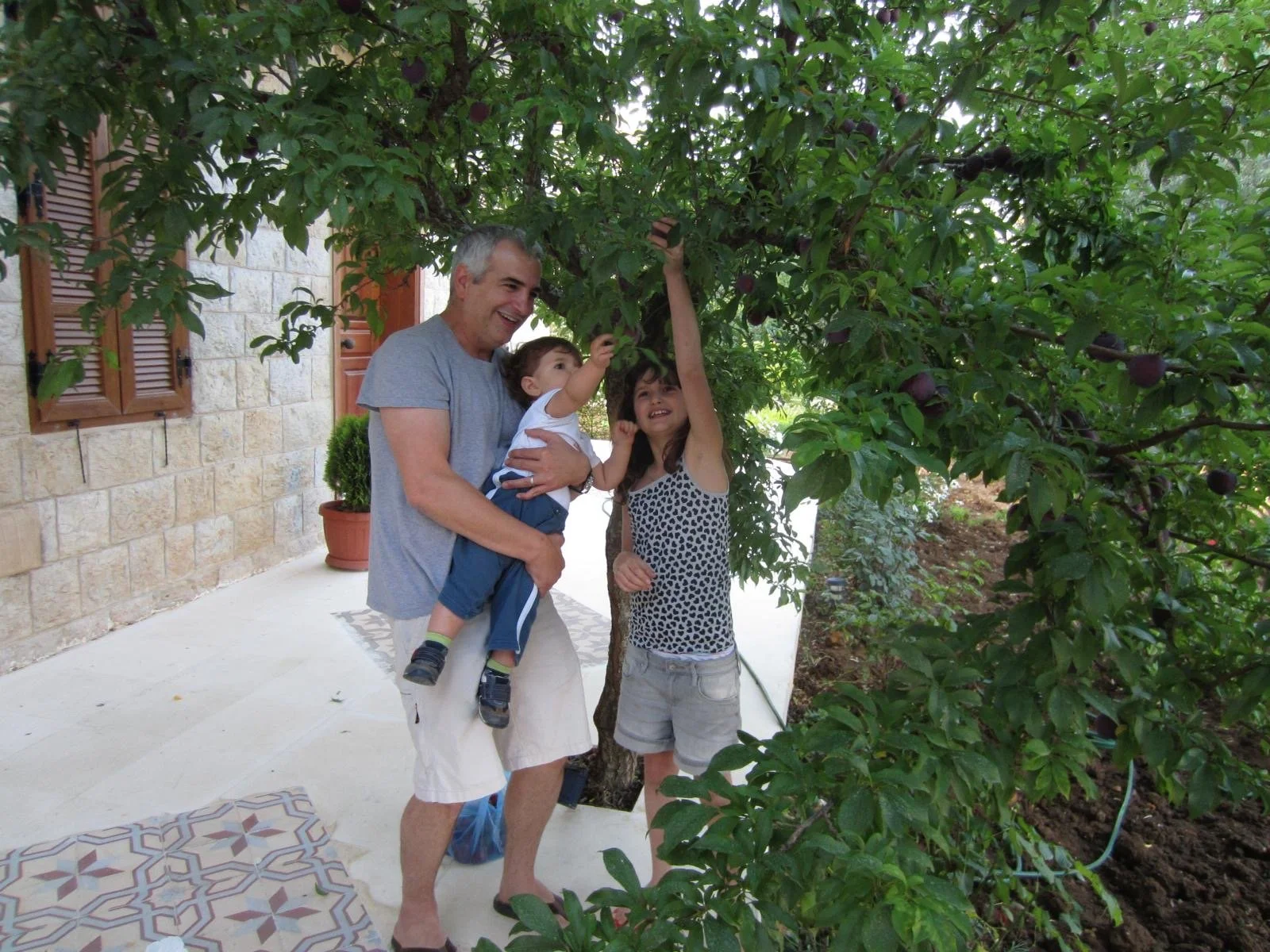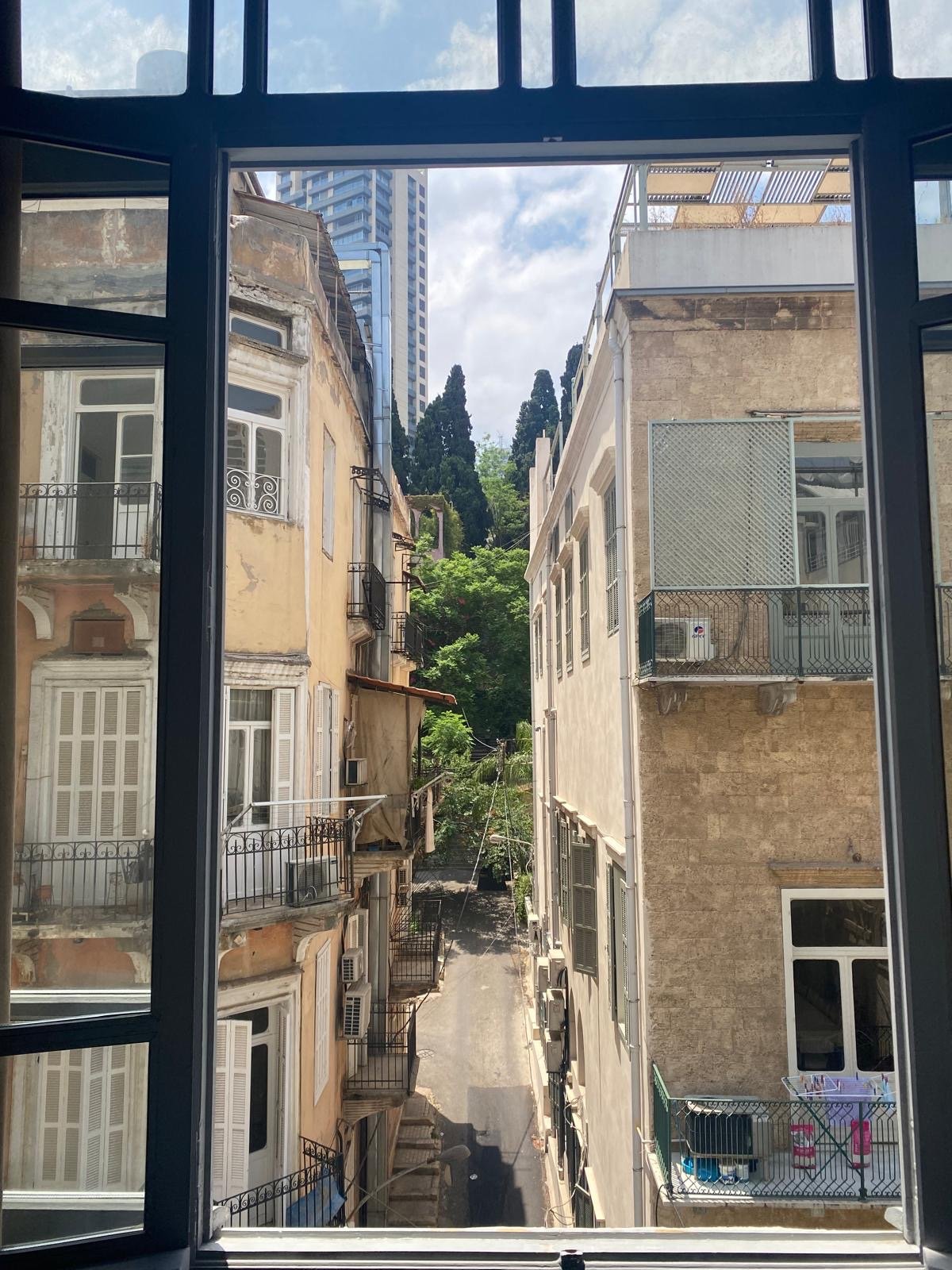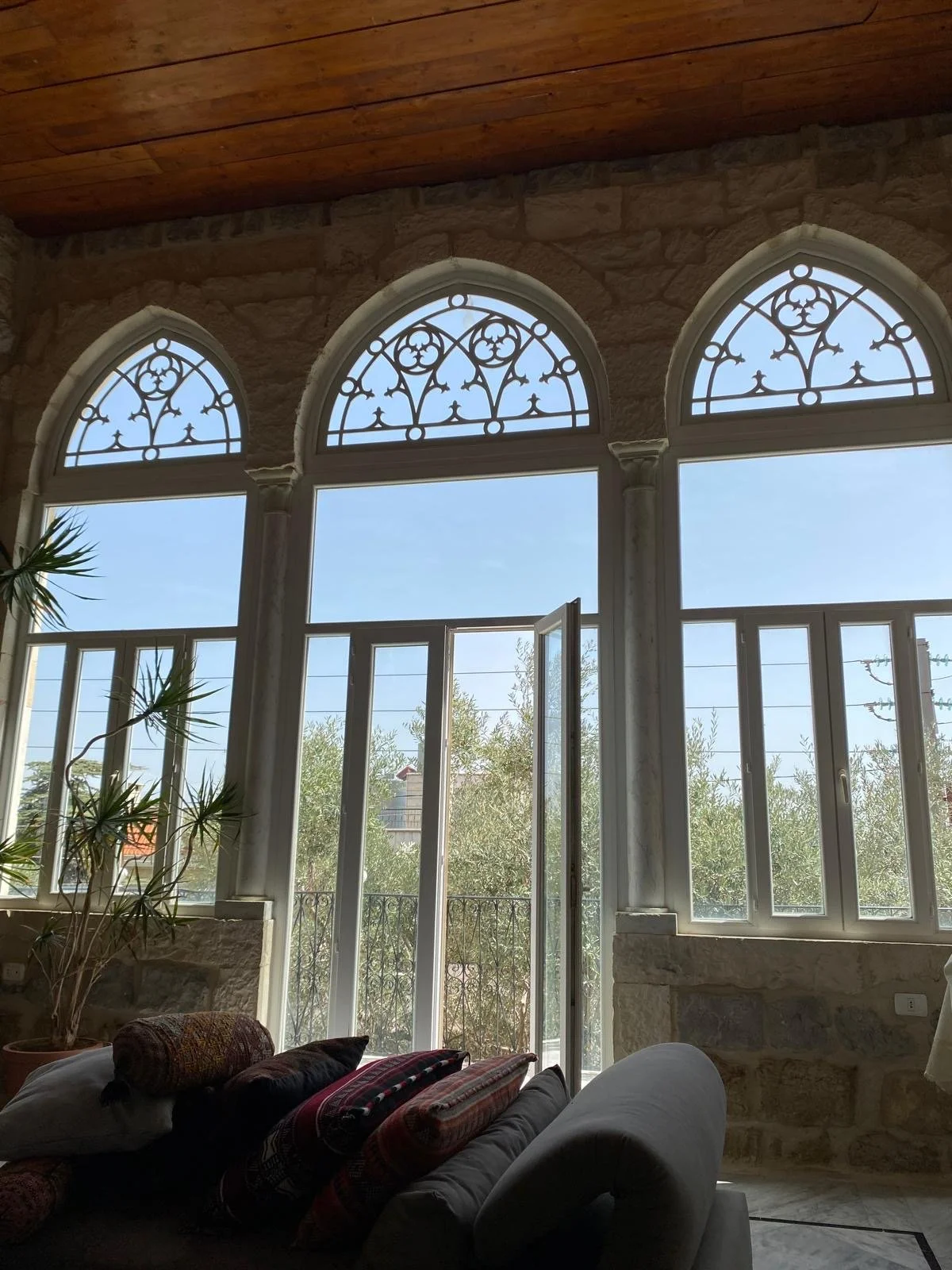Grieving Lebanese Pennsylvanians Send Aid to Families Displaced by Israeli Bombings
Lauren Abunassar
Since October 2023, when hostilities between Israel and Hezbollah escalated, Israeli military attacks on Lebanon have killed over 3,700, injured over 15,500, and internally displaced close to a million, according to Lebanon’s Ministry of Public Health. These staggering numbers have sown a sense of hopelessness among Lebanese Pennsylvanians who are horrified by Israel’s attacks and the resulting humanitarian crisis in their homeland. Many are mourning. Some also worry about the safety of family members in Lebanon. To counter feelings of helplessness, many have sent aid to the region. Al-Bustan News reached out to local Lebanese families to learn more.
“It’s so difficult to watch a place and a people to whom you are so connected suffer so much violence at the hands of international actors who have no regard for the wellbeing or livelihoods of people in the Middle East,” said 23-year-old Lebanese American and Penn alum Laila Shadid in an interview with Al-Bustan News.
In 2023, Lebanese American and Penn alum Laila Shadid, pictured above, visited her ancestral family home in Marjayoun, Lebanon. Courtesy of Laila Shadid.
Lebanon’s humanitarian crisis escalated this past October, when Israel invaded the country for the first time since 2006. Though a ceasefire between Israel and Hezbollah went into effect on November 27th, the deal is already on shaky ground. The United Nations peacekeeping force in Lebanon, UNIFIL, said Israel had breached the ceasefire agreement approximately 100 times, according to CNN. Among the violations, Israel opened fire on displaced Lebanese civilians returning to their homes in southern Lebanon just hours after the ceasefire took effect.
Upon graduating with a Bachelor’s degree from Penn in 2023, where she majored in Middle Eastern Studies and Sociology, Shadid traveled to the West Bank town of Bethlehem in August 2023 for a Fulbright Fellowship, before eventually moving to Amman, Jordan. She now lives in Amman as a Center for Arabic Study Abroad (CASA) Fellow. She keeps in frequent touch with her Lebanese family in the Beqaa Valley, just 19 miles east of Beirut. Since the Israeli invasion and bombings began, Shadid learned about a family friend who had converted their Beqaa Valley film studio into an aid center, supplying blankets, mattresses, food, baby products, and feminine hygiene products to internally displaced families. The center helped over 500 families with just $2,000.
In response, together with another Lebanese American CASA Fellow, Shadid raised over $10,000 since September. The money has gone to aid workers in Beirut as well as an NGO in the Beqaa Valley. “It’s a band-aid on a very broken system that we’re all witnessing failing in front of our eyes right now,” said Shadid. “Aid should be coming from governments. It should be coming from people who have millions and trillions of dollars to spend and contribute to the Lebanese people. But they’re not. And that’s the problem.”
Pictured above, Laila Shadid, at age 9, picking fruit with her father and brother at their ancestral home in Marjayoun, Lebanon. Photo courtesy of Laila Shadid.
Still, fundraising has been a way for Shadid to connect with her community and culture. While she celebrates what she sees as a shift in public opinion within the U.S. towards Palestine and Lebanon, she wonders what it would take for that to shift to have a tangible impact. “Sometimes, I don’t even really feel entitled to my own emotions in these situations. I don’t even feel entitled to my despair because I see what’s happening and I know my experience is not comparable to the reality of my people,” Shadid said.
Shadid remembers her first visit to Lebanon in 2012 following the death of her father, journalist Anthony Shadid, who was reporting in Syria for the New York Times when he died. The last time Shadid visited in 2023, she was able to see the family home in Marjayoun that her father had rebuilt before he died. Today, he is buried there. Marjayoun is one of the villages Israel has attacked while a ceasefire has been in place, killing at least one individual on December 2, as reported by Al Jazeera.
Shadid remembers her 2023 visit as something of a homecoming.
“I was understanding my family’s identity and my father all over again. I was eating fruits from the garden of the home that my father put his whole being into,” she said. “It felt like coming home in a lot of ways and I was so excited for the beginning of the rest of my journey there.”
The view from the family home of Laila Shadid in Marjayoun, Lebanon. Photo courtesy of Laila Shadid.
Shadid noted the indescribable magic of the Levant, of a Lebanon now suffering greatly with Israel’s ongoing attacks. “I think of the loss of that [magic], then the loss of possibility and of a future. And it’s something I’m definitely grieving.”
Lebanese Pennsylvanian Antoinette Elias Bader shared a similar sentiment. Elias Bader grew up approximately 70 miles north of Philadelphia in Easton, a community with a large Lebanese American population. Her father came to the U.S. in 1972 from Kfarsghab, a largely Maronite village in northern Lebanon. He returned to Lebanon in 1975, but returned to the U.S. when the civil war broke out.
Elias Badar is dedicated to protecting and celebrating her Lebanese heritage, raising her children to speak Arabic, attending the Our Lady of Lebanon Maroninte Catholic church in Easton, and attending the annual Lehigh Valley Lebanese Heritage Days Festival every August. She owns a home in Lebanon and canceled a family trip there because the October 7th attacks in Israel left her concerned about visiting the region. Today, she struggles with news of the ongoing Israeli strikes on Lebanon and its impact on her homeland.
“Today, we’re seeing everything happening in real time and it’s gut wrenching because we feel like our hands are tied,” Elias Bader told Al-Bustan News. “We’re feeling survivor’s guilt. We’re feeling remorse sitting at home, watching, waiting, praying, and trying to let other people know what’s going on.”
Like Shadid, she too began fundraising for internally displaced Lebanese.
In 2020, Elias Bader and her cousins founded Lehigh Valley for Lebanon, a grassroots community group fundraising for Lebanese in need. In September, they decided to ramp up their efforts, raising over $1,000 to send to Kfarsghab, which has taken in 100 displaced Lebanese. As the displaced migrate north, Elias Bader continues to fear for her family, knowing that Israel’s path of attacks could very well follow.
Elias Bader's family in Kfarsghab told her that Israel had launched an airstrike on an apartment building in Aito, just 15 minutes away from them. Elias Badar’s cousin’s 5-year-old nephew passed the rubble on his way to school. More than 20 people were killed in that strike.
Shadid’s family home in Marjayoun, Lebanon was rebuilt by her father who went on to write about rebuilding the home in his memoir House of Stone (2012). Photo courtesy of Laila Shadid.
“Lebanon has always been the battleground of neighboring conflicts for decades,” Elias Badar said. Though she is haunted by the escalating violence, struggling with whether or not she can even follow the news, she is determined to embrace hope. “[Lebanon is] resilient,” she said. “Half of Beirut is in rubble and we will rebuild again because that’s just our spirit. We are strong and we show love and kindness wherever we go.”
Similar to Elias Badar, Allentown, Pennsylvania resident Fadia Halma is searching for hope in community. Halma, the Regional Director of the Pennsylvania Department of Community & Economic Development, was born in the U.S. along with her sister. However, the rest of her family, including her parents and other siblings are from Beirut. “We’re all feeling heartbroken,” Halma told Al-Bustan News. “But it’s really a time to look at each other, hug each other, love each other, and be spokespeople for our community, making sure that we’re educating others.”
Halma was one of 75 Lebanese Americans who attended a November 24th flag raising in Easton’s Centre Square in honor of Lebanon’s Independence Day.
Halma thought about her mother at the ceremony. “Looking out at that crowd, I just thought about how proud my mom would be to know that the Lebanon I heard so many stories about growing up — with the beautiful beaches, the mountains and everybody taking care of each other — we are all still there for each other as one big family.”
Halma, who worked with the Kamala Harris presidential campaign on Arab American outreach, fears that the incoming Trump administration could worsen conditions in Lebanon. “I do feel defeated in the sense that I have no faith that this next administration will do good by Lebanon. I still have to believe that the Lebanese Americans here in the United States and the collective good of the people here will continue to raise their voices and advocate, because if I don't believe in that, then it's going to be very difficult to get out of bed,” Halma said.
She recalls speaking with Lebanese Americans earlier this year during the Harris campaign, as the humanitarian crisis in Lebanon was escalating. “They all wanted people to understand that Lebanon has been through turmoil before and [that in the past, the Lebanese people] rose again.” In this sense, many in the diaspora are balancing a complicated register of emotions. There is a desire to see their homeland celebrated and acknowledged for its rich culture and spirit of community aid. At the same time, they don’t want Lebanon’s suffering to be swept away or go unacknowledged.
For Halma, community gatherings like the flag raising felt like a revelation of the only path forward for people in the diaspora. “It was very emotional to see the flag go up knowing that so many are in pain and knowing what’s coming in the future. But it was so symbolic,” Halma said. “Family and love of our country is what’s going to have to carry us through the next couple of years.”
***
Lauren Abunassar is a Palestinian American writer and journalist. A Media Fellow at Al-Bustan News, she holds an MFA from the Iowa Writers’ Workshop and an MA in journalism from NYU. Her first book Coriolis was published as winner of the 2023 Etel Adnan Poetry Prize.




